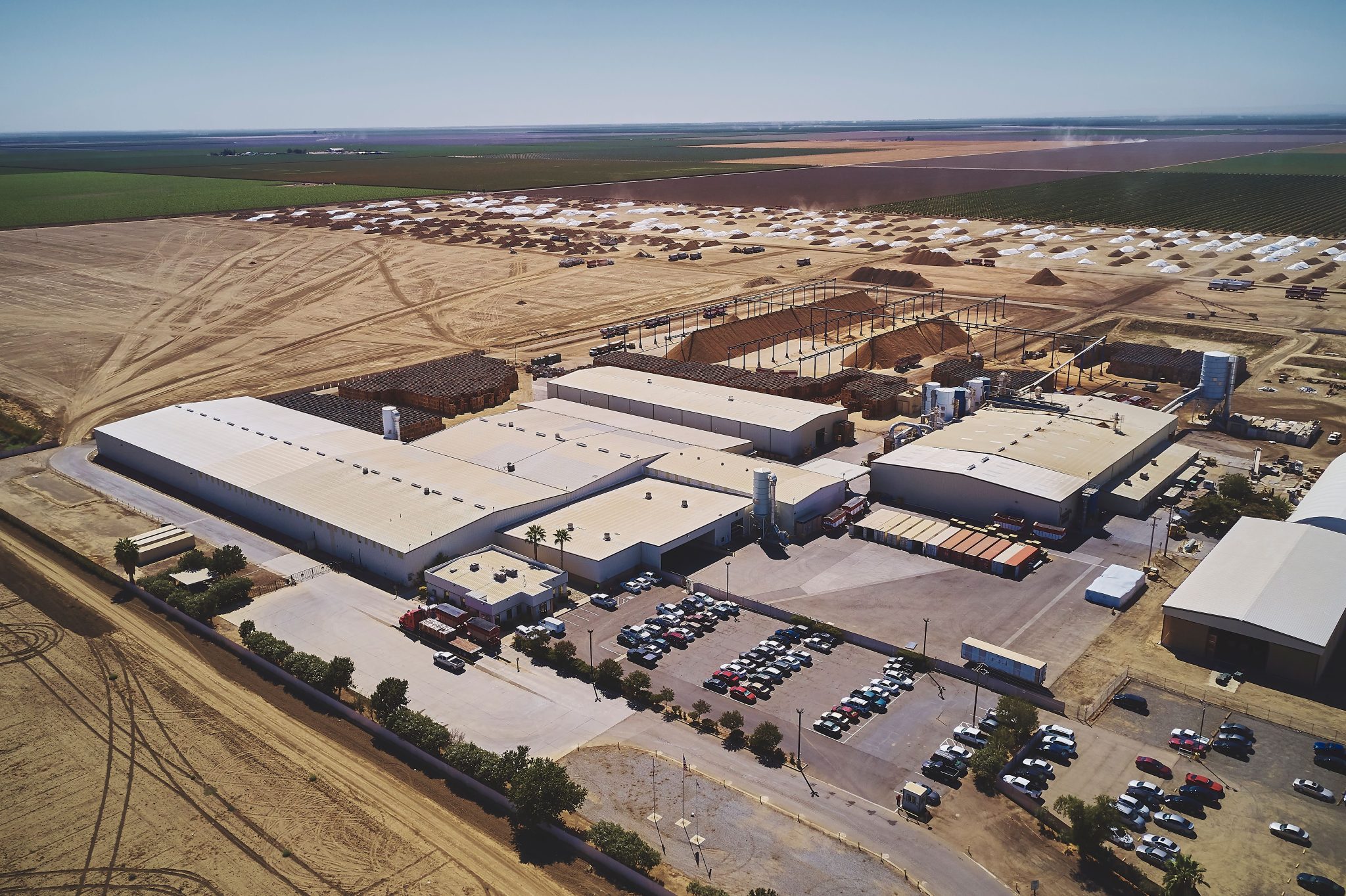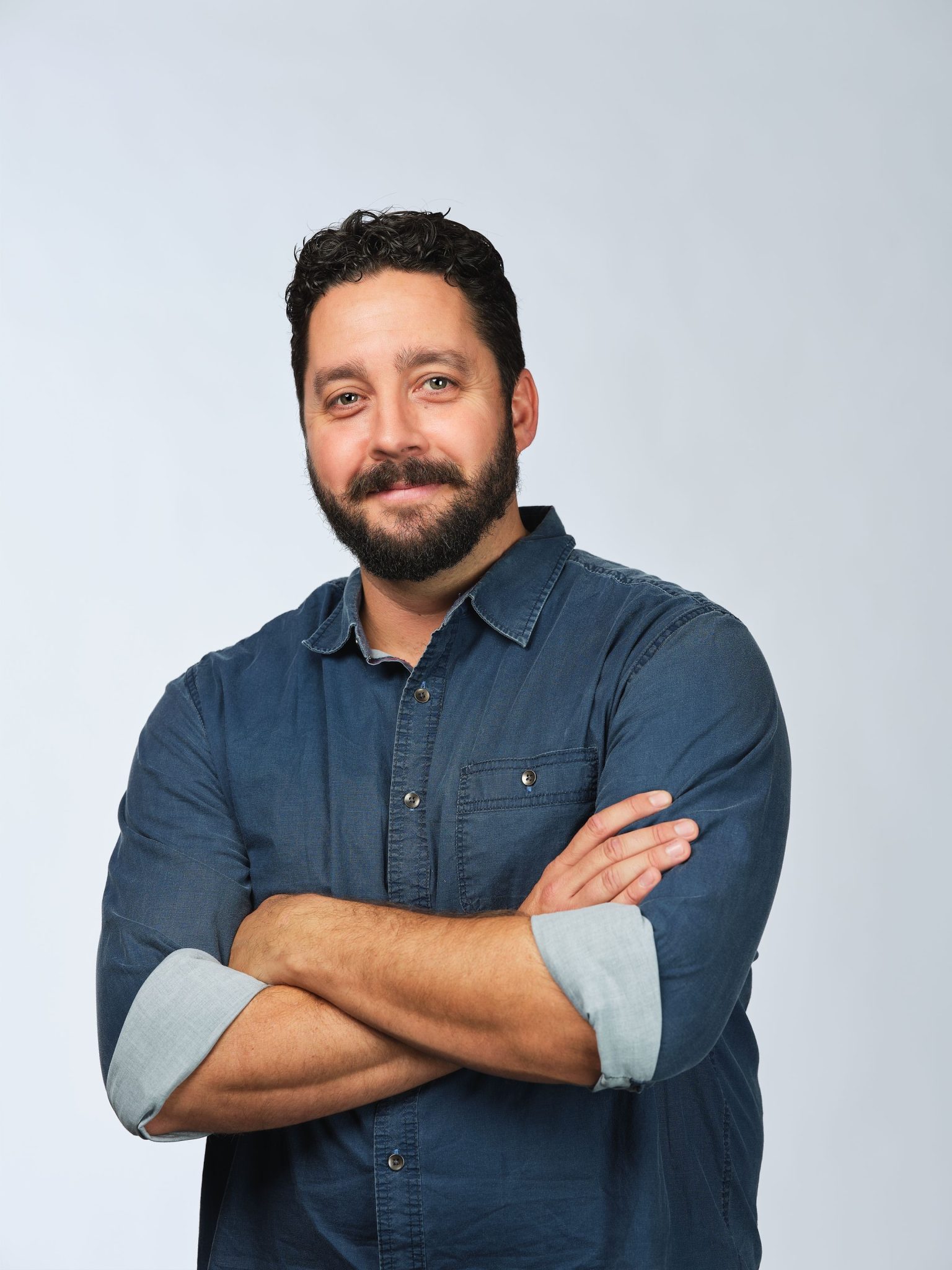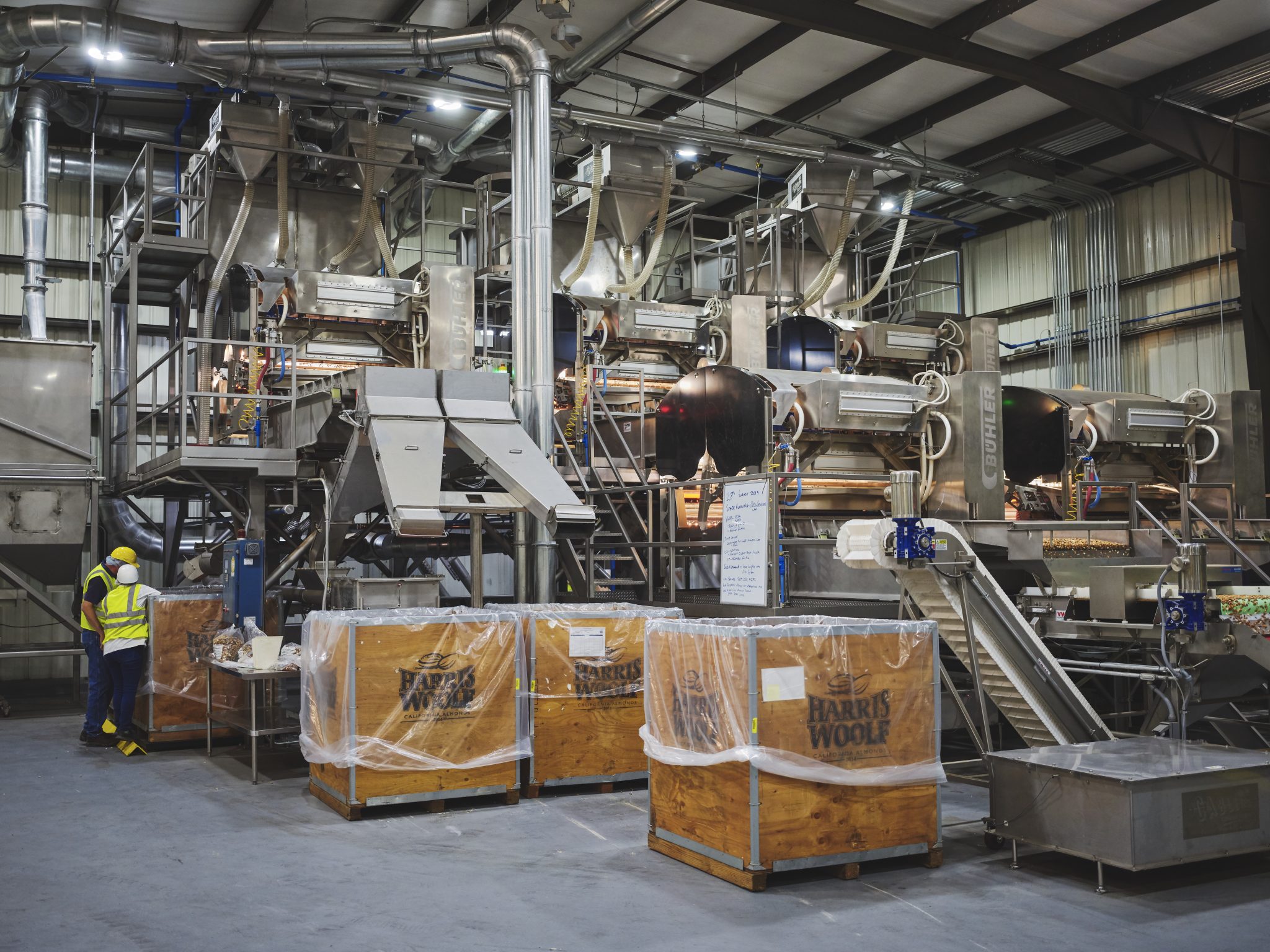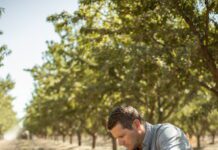
Before 2017, Justin Morehead had never heard of a Certified B Corporation.
But over the next three years, the Harris Woolf Almonds CEO would not only learn what that was but would lead the almond processor to join major companies like Danone and Patagonia in becoming a Certified B Corporation.
Based in Coalinga, Harris Woolf Almonds handles up to 80 million pounds of the tree nuts each year, making it one of California’s largest almond processors. It operates a hulling/shelling and processing plant at Coalinga and a value-added processing facility in Ballico near Turlock. The company is co-owned by two long-time west Fresno County farming families: Harris Farms and Woolf Farming.
The pathway to becoming a Certified B Corporation began with an in-depth, year-long evaluation to deter-mine whether Harris Woolf Almonds met the requirements for certification. Morehead and his team learned that a Certified B Corporation holds itself to the highest standards of social and environmental performance, public transparency and legal accountability. There are more than 4,000 B Corps™ around the globe, but few are within California agriculture.
The year-long evaluation effort earned Harris Woolf Almonds a score of 87.8 from the nonprofit organization B Lab™. The minimum score for certification is 80; the median score is 50.9 for businesses that complete the assessment.
Morehead and key employees then set about benchmarking Harris Woolf’s practices and establishing sustainability goals. In January 2022, the processor released its Inaugural Impact Report. The 22-page report (found at harriswoolfalmonds.com/sustainability/) explains the ambitious goals Harris Woolf Almonds expects to reach by 2025.
Morehead, CEO of the company since 2018, shared with West Coast Nut the journey his company is taking to make a positive impact and become a role model for sustainability in the almond industry.

Q. How did you learn about becoming a Certified B Corporation?
It’s a designation that was introduced to us by one of our customers. It’s bestowed on those businesses that pass the rigorous B Impact Assessment™. We took a look at what it entailed. The focus is really on evaluating how our company interacts with our stakeholders. It doesn’t just include our owners. It’s our community, our employees, our suppliers, our customers, the environment.
You go through a process of answering literally hundreds of questions on your company and providing supporting evidence to your answers to be able to score in those various aspects. And through that, you earn points that show your engagement within all of those areas. It is a true certification process.
Q. How long did it take Harris Woolf Almonds to get certified? Who was involved?
It probably took us about 12 months. It was done through our leadership team, so it really was a top-down process for our company. It was a great experience for us because it helped us understand what we’re good at in engaging with our stakeholders and where we’ve got some room to grow.

Q. What did you learn from the process?
Based on the assessment, we scored very well on corporate governance, engaging our community and working with our employees. It was clear that our biggest opportunity to improve was on environmental impact. So, we chose to do our first environmental impact study, which we did through a third-party consultant. Because if we wanted to improve in this area, we had to start measuring. It’s really not something that our industry has done, at least that I’ve heard of, so we’re kind of breaking new ground on doing this. We didn’t really have any defined metrics at that point. We took a look at our greenhouse gas (GHG) emissions and essentially bench-marked some of the practices within our facilities against industry standards.
What came out of that study was developing an inaugural impact report for the company. Once we realized, “OK, now we have something that we’re assessing ourselves against, how do we hold ourselves accountable to actually make some change?” No one asked us to create that impact report. That was something that was really self-driven for us to be able to recognize if we want to move forward, we need to put some goals out there.
Q. What goals did you set?
• We have established four goals related to our facilities and our supply chain that we aim to achieve by 2025:
• Pollinator health: 75% of our grower acreage will be Bee Friendly Farming Certified;
• Supply chain engagement: 75% of the total acreage of our grower base will come from growers who have completed the California Almond Stewardship Platform (CASP);
• Energy efficiency: 50% of facility energy use will derive from renew-able sources;
• Carbon footprint: 25% reduction in absolute GHG emissions from facilities.
For the first two goals, the fact that Harris Woolf Almonds is owned by two owner-growers is very helpful because we can work with our owners who are growers themselves to figure out what programs would work well to try to improve engagement with our own supply base.
We knew we wanted to focus on pollinator health and overall sustainability. Rather than start from scratch, we chose to align with two very strong existing programs: Pollinator Partnership’s Bee Friendly Farming program to improve pollinator health within the orchard, and CASP to better understand sustainable practices in our grower supply chain. This is becoming very important to our customer base because end consumers are asking these kinds of questions. We understand there’s a cost for our growers associated with participating in these programs. So, the next step is to work with our growers to establish incentive programs to compensate for their efforts. That’s going to be a big part of our future.

Q. How will your new efforts affect your facilities?
On the facilities side, we wanted to focus on our GHG reduction.
We commissioned a baseline carbon footprint assessment in 2021 to get a better understanding of where we could improve on GHG emissions. We knew that, based upon the study, there were some things we could do, like solar energy, that would create a huge impact, both in renewable energy increase and in GHG reduction. We were able to set metrics and establish plans associated with those metrics. It’s about meeting those goals, but economically it makes a lot of sense.
Q. Why is this certification so important?
Right, why do we do this? It’s important to the end consumer. And it aligns with the values of Harris Woolf. Harris Woolf has always been run with other stakeholders in mind. It’s never been just about the bottom line. We’re affecting growers. We’re affecting our employees who often come from socioeconomically disadvantaged communities. We’re impacting those communities in how we give back.
When I shared this with our board and with our co-founders, John Harris and Stuart Woolf, they looked at it and said, “Well, really, this is how we’ve always looked at the business. So why wouldn’t we test ourselves against this?” In fact, Woolf Farming has also become a Certified B Corporation, which means from our growers to our company to one of our top customers, we participate in an end-to-end B Corp supply chain.
A lot of people think that when you focus on sustainability, it comes at the expense of the bottom line. But what we’ve learned is that a lot of these things work in tandem. We all know solar projects are environmentally friendly and provide a great economic return. But there are also economic benefits to sharing the story of sustain-ability within our supply chain. I think consumer demand for supply chain transparency is strong enough that we will actually be able to command a premium for growers who are committed to these values. It allows us as a processor to develop deeper connections with our customers that benefit the grower through consistent, long-term demand.
We’re not trying to say we’ve got it all figured out. We clearly don’t. We see this as a journey, and the very beginning of a journey, not a destination, by any means. Because going through this process has opened up our eyes to areas that we really need to focus on.










